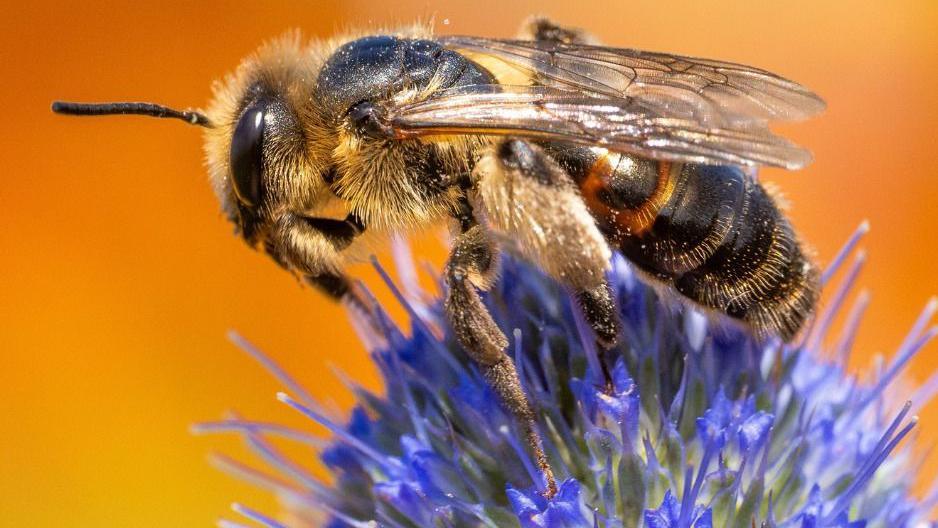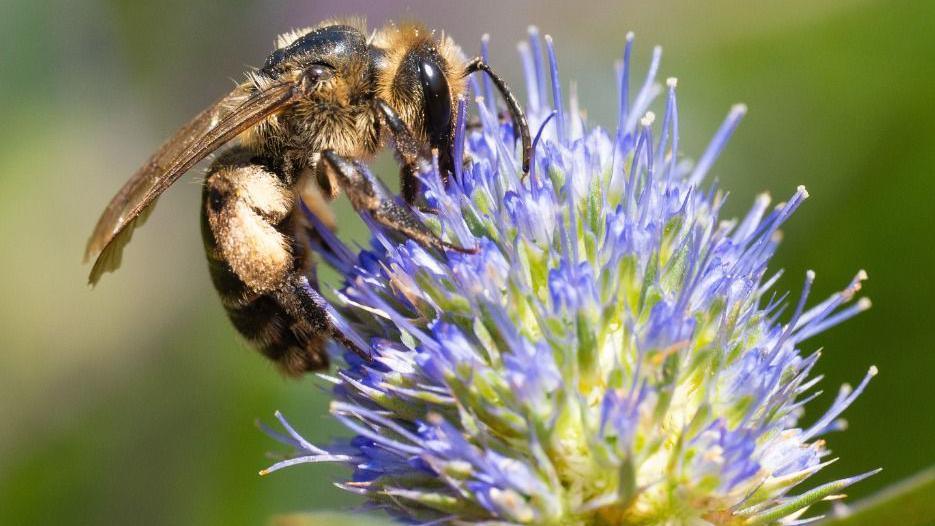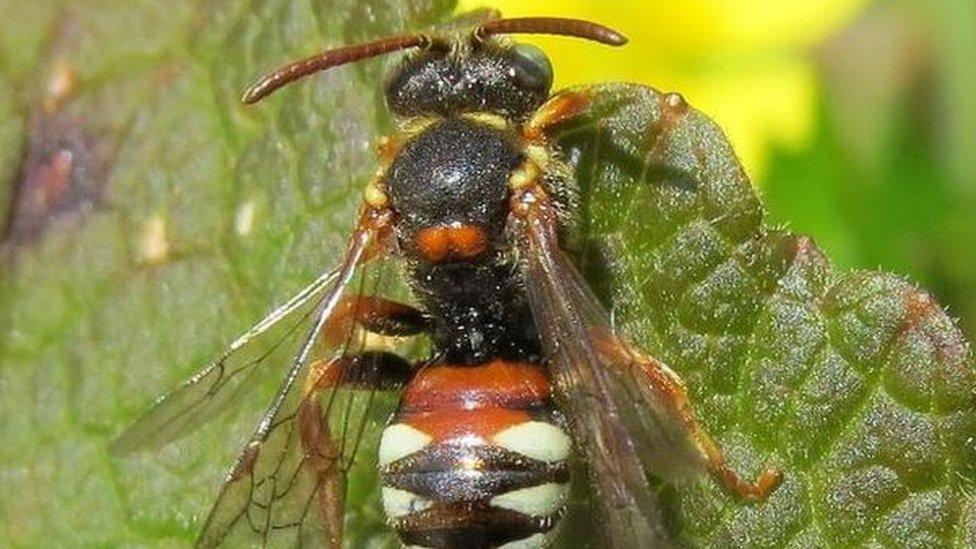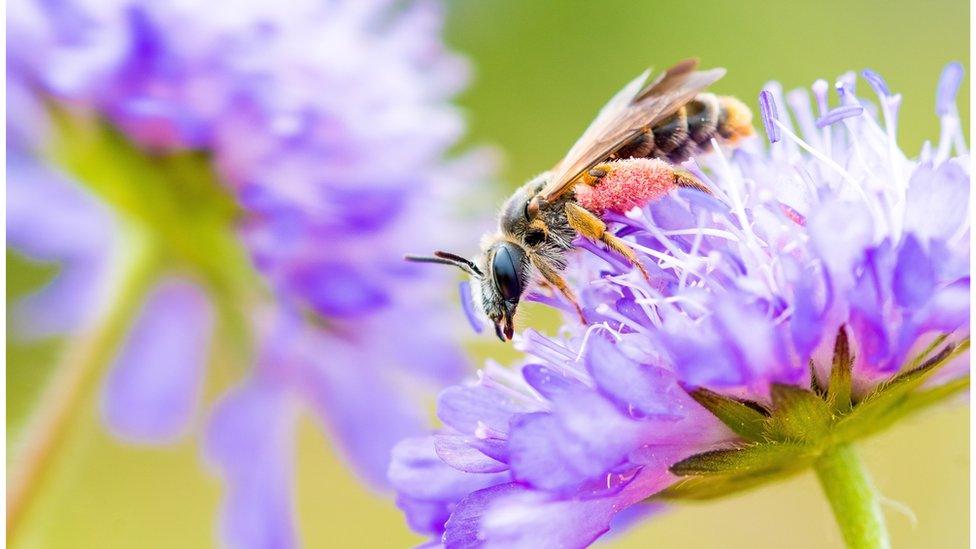Rare bees drawn to pollinator planting in park

Late summer flowers like those planted in Gwavas Park are important to support Perkins' Mining Bees, Cormac said
- Published
A rare species of bee has been found in a newly planted park in west Cornwall, says an expert.
The Perkins' Mining Bee, Andrena rosae, was spotted visiting flowers planted to attract pollinators in Gwavas Park in Newlyn by insect migration scientist Dr Will Hawkes.
The species is designated as rare and in decline on the European Red List of Bees, external.
Dr Hawkes said: "It was so exciting to find such a rare species here."

A Perkins’ Mining Bee
Supported by engineering contractor Cormac, the park was planted in spring by pupils from Newlyn and Alverton primary schools together with gardeners from the Newlyn Community Flora Group.
Dr Hawkes said: "The site has only just been made suitable for all of our wonderful pollinators.
"It is testament to the quality of the site that such a rare species has arrived so quickly.
"If we give all of these gorgeous insects a chance by creating habitat for them, they will quickly recover."
Dr Hawkes said he had been watching sea holly flowers, looking for insects when he spotted the honeybee.
"Identifying her, my excitement only got more until she revealed herself to be Andrena rosae, Perkins' mining bee, a species I had never seen before despite hunting for bees my whole life."
Cornwall stronghold
A spokesperson for Cormac said: "The new pollinator planting at Gwavas Park, Newlyn is having a fantastic impact on the environment, helping reverse insect decline in Cornwall.
"The Urban Green Shoots scheme works to achieve these kinds of fantastic environmental results - so well done to the whole team involved."
According to Kernow Ecology, which surveys wildlife in the county, Cornwall is a stronghold for the species, with the largest population around Land's End.
The species has other small scattered populations on the north coast, The Lizard, one site on Bodmin Moor and one on the Roseland.
Josh Baum, of the Cornwall Wildlife Trust, said the sighting of the bee "shows that positive habitat creation can make a difference".
"This area is a stronghold for this species which used to be common in the south of England and Wales, but any record is valuable," he said.
Follow BBC Cornwall on X (formerly Twitter), external, Facebook, external and Instagram, external. Send your story ideas to spotlight@bbc.co.uk, external.
- Published12 August 2023

- Published7 December 2022
